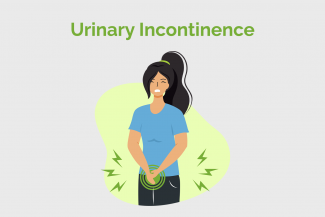Urinary Incontinence affects twice as many women as men and 50 per cent of elderly women suffer from it. It may affect younger women too.
Urinary incontinence can be caused by daily habits, underlying medical or physical problems. It may be temporary or persistent.

Some people experience occasional minor leaks of urine while others wet their clothes frequently.
Complications of urinary incontinence
Skin problems: Rashes, sores and skin infections can develop from constantly wet skin.
Urinary tract infections: Incontinence increases your risk of repeated urinary tract infections.
Impact on your personal life: Urinary incontinence can affect your social, work and personal relationships.
Changed
13/Oct/2015
Condition







